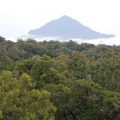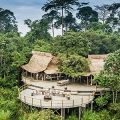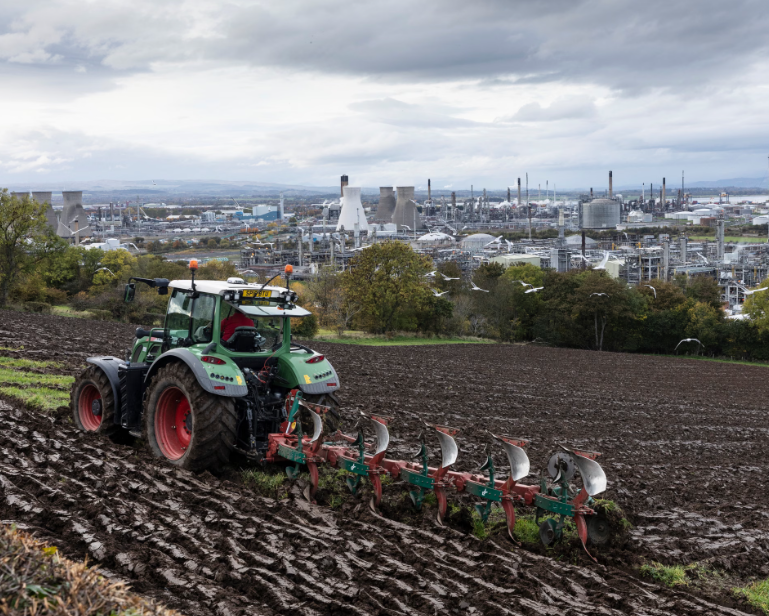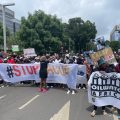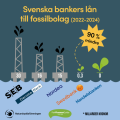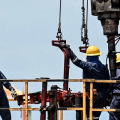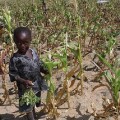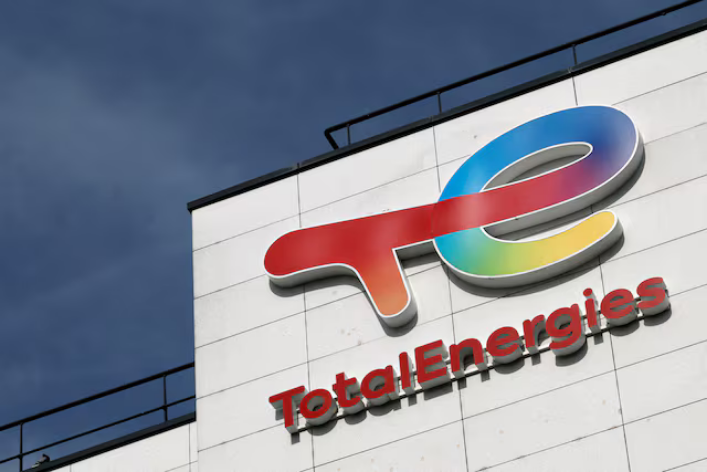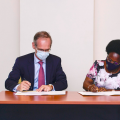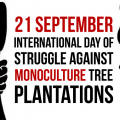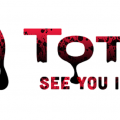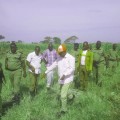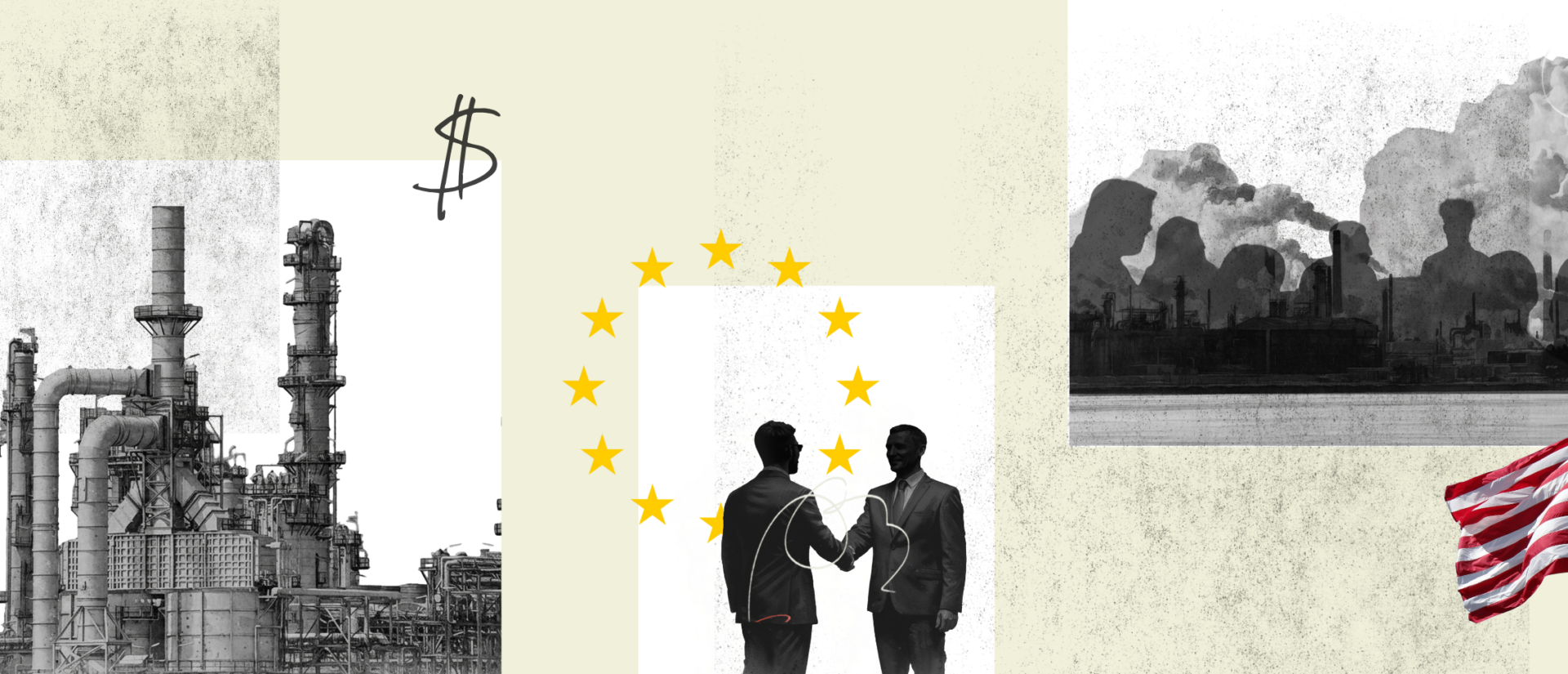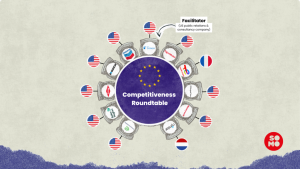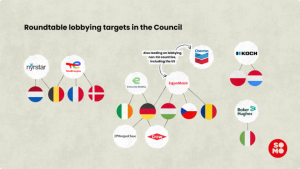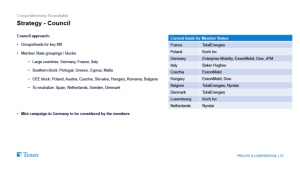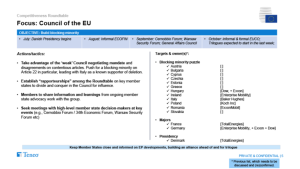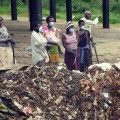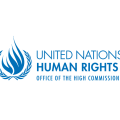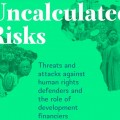This bulletin focuses on a central cause of large-scale deforestation and dispossession of forest peoples: The imposition of land concessions as an instrument to separate, divide and map land according to economic and political interests. In consequence, the editorial alerts on the grabbing of vast amounts of hectares for Carbon Concessions.
This bulletin pays attention to what the WRM Secretariat considers as a central cause of large-scale deforestation and dispossession of forest peoples: The imposition of land concessions as an instrument to separate, divide and map land (and forests) according to economic and political interests.
This is not an easy subject; it forces us to deeply reflect about mainstream perceptions of ‘land’, how these attempt to violently separate it from the rest of ‘nature’ – including its inhabitants, and how the colonizers and capitalist Elites have been organizing and using it according to their interests.
Some articles in this bulletin explore the colonial histories of how concessions were imposed and resisted across the Amazon, South East Asia and the Congo Basin. In some cases, like the articles focused on the DR Congo and Thailand, one can clearly comprehend the direct and deep implications that these histories have on today’s continuous violence, discrimination and struggles around land. The article focused on the women’s resistance in Brazil, alerts on how the privatization of conservation concessions is a serious threat to the livelihoods and cultures of local populations. Another article alerts on the international push to create more Protected Areas ‘without people’ and exposes the current trend of privatizing these Parks’ management in the African continent in particular.
In close relation to this push for more Protected Areas, there is a serious risk of a vast expansion of another type of concessions in order to exert control over tropical forest land: Carbon Concessions. These concessions aim to control in particular the carbon commodity in it and other so-called ‘ecosystem services’. Actors, such as international conservation NGOs, multinational corporations, brokers, banks, traders, certification agencies, governments and others, are competing in (and facilitating) the trade of carbon credits and offsets while expanding the means for land control.
Hundreds of multinational companies and more than 130 governments have committed to countless ‘net zero’ emissions targets, which in tandem with the push for so-called Nature-Based Solutions, explain the rush on Carbon Concessions. This big wave of climate targets also explains why such concessions tend to be much bigger than most forest carbon projects promoted so far.
In this context, for example, in late 2021, company Mayur Renewables PNG (MR), subsidiary of Mayur Resources (MRL), got three Carbon Concessions from the Papua New Guinea (PNG) government, covering approximately 800,000 hectares of forests. These concessions have a crediting period of over 30 years, and according to the company, these are “Nature-Based REDD-Carbon Offsets projects.” (1). The company’s aim is to expand to 1.4 million hectares.
PNG-based MRL aims to become the main supplier of “carbon neutral lime and cement products” in the region, and these Carbon Concessions are supposed to make its Central Cement & Limestone Project near Port Moresby into a ‘carbon neutral’ business. (2)
On December 2021, VT Carbon Partners gave MR a US 3 million dollars loan facility. VT Carbon Partners is a joint fund management from Viridios Capital and Tribeca Investment Partners. This fund was launched in 2021 with an initial 500 million Australian dollars (over US360 million dollars) portfolio to be deployed to ‘nature-based projects’ certified by Verra. With these large Carbon Concessions and expansion plans, PNG is set to become one of the largest carbon credit producers in the world.
During a webinar from 2021, the CEO of Viridios Capital stated that, “A whole new industry can be created here and potentially a new export market for PNG as well. Just thinking about the requirement for developed countries to mitigate their emissions (…), especially for neighbouring developed countries, like Australia and New Zeeland, which need those offsets. And that would create a whole new industry in PNG, including local communities, who would need to be re-trained on proper forest management, science and academia training up on new technologies as well.” (3) (emphasis added)
This CEO must be thinking that a proper forest management is one in which the use of the forest is only for the profit-seeking interests of the concessions’ investors, and for which local communities need to be re-trained on how they should behave, and live differently from coexisting with and using the forest on their own terms
Similarly, although receiving much more media controversy, in November 2021, an agreement between the government of Malaysia and Singapore-based Hoch Standard Ptd. Ltd. granted the company more than two million hectares of tropical forests as a Carbon Concession in the Malaysian state of Sabah on the island of Borneo. The plan was to expand the project to four million hectares. According to the agreement, foreign entities would hold the rights over these forests for the next 100 to 200 years. Global consultancies Tierra Australia and Global Nature Capital were also involved in the negotiations of the agreement.
In response to a flurry of attention from media and civil society organizations and groups in Sabah, in February 2022, the State Attorney General for Sabah put out a press statement in which she described the proposed ‘Nature Conservation Agreement’ as “legally impotent”. Ten days later however, and despite the many technical impossibilities that have been found to sign this deal, Sabah’s Deputy Chief Minister Jeffrey Kitingan said that “everything is good” with the Agreement. (4)
An indigenous leader from Sabah reflected on this Agreement and on the absolute lack of consideration for the indigenous groups living in those forests, “Is history repeating itself? Are we not yet free or healed from our colonial and wartime histories?” (5) A very valid question indeed.
(1) Mayur Resources, Mayur’s forest carbon concessions granted paving pathway to “net zero” projects and opportunity to provide high quality carbon credits for global carbon markets, 2022.
(2) Pacific News Services, Mayur gets carbon concessions, 2022.
(3) Mayur Resources Forest Carbon Concessions Investor Webinar, January 2022.
(4) REDD-Monitor, A question for Jeffrey Kitingan, Sabah’s Deputy Chief Minister: Who owns Lionsgate, the company registered in the British Virgin Islands that owns all the shares in Hoch Standard?, February 2022.
(5) Mongabay, Is colonial history repeating itself with Sabah forest carbon deal?, 2021.
Original Source: World Rainforest Movement
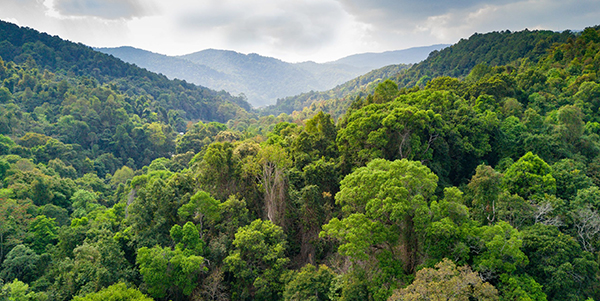

 NGO WORK2 weeks ago
NGO WORK2 weeks ago
 MEDIA FOR CHANGE NETWORK2 weeks ago
MEDIA FOR CHANGE NETWORK2 weeks ago
 MEDIA FOR CHANGE NETWORK2 weeks ago
MEDIA FOR CHANGE NETWORK2 weeks ago
 MEDIA FOR CHANGE NETWORK2 weeks ago
MEDIA FOR CHANGE NETWORK2 weeks ago
 MEDIA FOR CHANGE NETWORK2 weeks ago
MEDIA FOR CHANGE NETWORK2 weeks ago
 MEDIA FOR CHANGE NETWORK7 days ago
MEDIA FOR CHANGE NETWORK7 days ago
 MEDIA FOR CHANGE NETWORK1 week ago
MEDIA FOR CHANGE NETWORK1 week ago
 MEDIA FOR CHANGE NETWORK2 days ago
MEDIA FOR CHANGE NETWORK2 days ago

